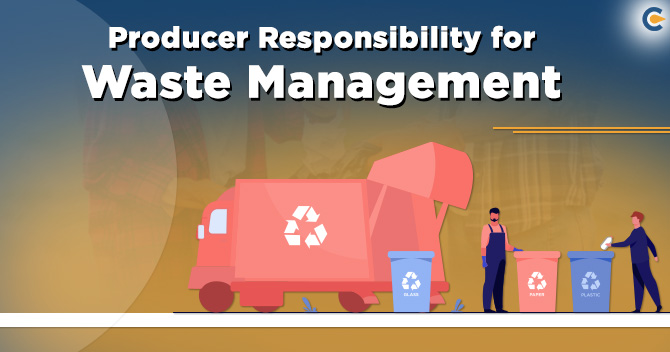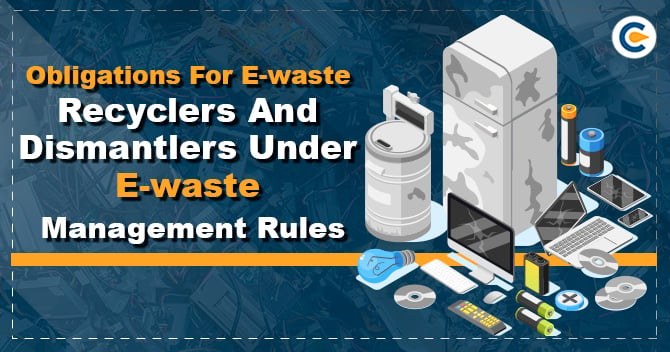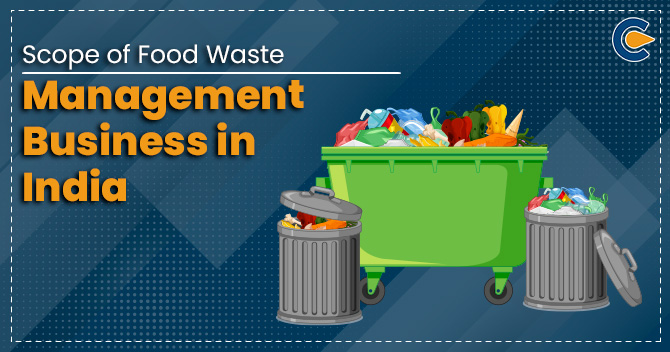Most industrialized nations promote reuse, recycle, and eco-friendly disposal of poly waste using the strategy such as extended producer responsibility. EPR assigns the responsibility of disposal of the waste to the manufacturer of goods. For instance, disposal of the flexible packaging used for the food items, consumer goods, and water bottles is assigned to consumer goods manufacturers. Similarly, the disposal of waste tires responsibility is assigned to the tire manufacturing companies under EPR.
EPR lays a closed-loop approach to manage products, whereby waste generated from a product is used to produce another product. This approach ensures that the price of a product includes the cost of its safe disposal. Therefore, the approach significantly reduces the environmental impact of waste and leads to a lower cost of production for the new product.
EPR and Responsibilities
The extended producer responsibility has three liabilities, and the extent of these liabilities is determined by legislation. These three liabilities are described below:
Economic responsibility
These expenses could be paid for directly by the producer by a special fee. It means that the producer will cover all or part of the expenses, such as for the collection, recycling, or final disposal of products he has manufactured.
Physical responsibility
Physical responsibility must be used to characterize the systems where the manufacturer is involved in the physical management of the products and their effects. The manufacturer can also retain ownership of the product throughout the product’s life cycle and, therefore, be responsible for environmental damage.
Informative responsibility
It signifies several different possibilities to extend responsibility for the products by requiring the producers to supply information upon the products such as environmental properties during product manufacturing.
Extended Producer Responsibility of Producers, Importers and Brand Owners
- The producers have to work out modalities for the waste collection system based on Extended Producers Responsibility within a period of 6 months from the date of publication of the rules. It must involve State Urban Development Departments, either individually or collectively, through their distribution channel or the concerned local body.
- The primary responsibility of Producers, Importers, and Brand Owners who introduce the products in the market is to collect the used multi-layered plastic sachet or pouches or packaging. They require establishing a system for collecting back the plastic waste generated due to their products. The collection plan is to be submitted to the State Pollution Control Boards while applying for Consent to Establish or Operate or Renewal. Such a plan must be submitted within 1 year from the date of notification of the rules and implemented within 2 years thereafter.
- The manufacture and use of multi-layered plastic that is non-recyclable or non-energy recoverable with no alternate method must be phased out in 2 years. (As amended vide notification dated March 27, 2018)
- The producer must apply to the NOC Pollution Control Board or the Pollution Control Committee of the States or Union Territories within a period of 3 months from the date of the final rules for the grant of registration.
- The producer must not on and after the expiry of a period of 6 months from the date of final publication of the rules, use, or manufacture any plastic or multi-layered packaging without registration from the concerned State Pollution Control Board or the Pollution Control Committees.
- The producer must maintain a record of details of the person engaged in the supply of plastic used as raw material to manufacture carry bags or plastic sheet or cover made of plastic sheet or multi-layered packaging[1].
Read our article:Permissions and Licenses Required for Health Drinks Business in India
What is the role of the Producer Responsibility Organization?
In case a manufacturer introduces 100MT of polymer packaging material in the market, then it is their responsibility for the collection and disposal of 100MT of plastic waste. The company can also delegate the responsibility to the Producer Responsibility Organization (PRO). The manufacturer has to pay the PRO for the collection and safe disposal of plastic waste. However, the EPR has shifted the burden of waste disposal from governments to the product manufacturers; hence it has driven the adoption of innovative product and packaging strategies, which leads to the reduction in plastic waste.
The waste generators, such as brand owners or producers, are required to collect the waste generated through their business. This responsibility is met by the waste collection agencies recognized as the Producer Responsibility Organisation. PRO registration will provide information on PRO’s experience, interest, capacity in terms of manpower net worth, and willingness to work in a specific State.
Guiding principles of Producer Responsibility Organization
- Producers/importer/brand owners can go through PRO required to ensure that an equivalent amount of plastic is being collected and processed.
- PRO will lead the implementation and provide the funding required under the Rules on behalf of producers to support plastic recycling.
- The program must promote the inclusion of waste pickers to improve their working conditions and incomes.
- PRO can also obtain certificates from accredited processors [recyclers, W2E plant operators, cement co-processors, users utilizing plastic in the road] in exchange for evidence of recycling or recovery, which will act as ERP compliance.
- Producers/importer/brand owners will be at liberty to engage buy-back or deposit refund schemes individually or collectively registered PROs with the ULBs, processors, and the informal sector.
Categories of waste
There are two categories of waste as prescribed, those are as follows:-
Plastic Waste
- Multi-Layered Plastic (MLP)
Most companies use Multi Layered Plastic packaging for chocolates, snacks, and biscuit wrappers. It consists of plastic combined with other materials such as paper, polymeric materials, paper board, and metalized layers of aluminium foil. This type of packaging helps in the safe storage of perishable goods. However, the designers have not given enough thought to recycling solutions for MLP. Most of the MLP is currently being landfilled or illegally dumped across the country, causing a serious threat to an environment.
- Polyethylene Terephthalate (PET)
Polyethylene Terephthalate, commonly called PET, is a universally used packaging material with a high potential to be recycled. PET collected through various sources and got diverted to recycling factories where it gets converted to recycled yarn. It is made into recycled items such as t-shirts, bags, caps, etc.
E-WASTE
In 2018, India generated an estimated 18 lakh tonnes of the e-waste. It is expected to increase to 50 lakh tonnes by the end of 2020. The electronic products contain thousands of various metals. Some of the metals are precious, like gold and copper. However, that are also highly toxic heavy metals like mercury, lead, and cadmium. Currently, an informal sector handles over 95% of all the e-waste in India.
Plastic waste management
Ministry notified Plastic Waste Management Rules, 2016, on March 18, 2016. According to the Rules, the waste generators have been mandated to take precautionary steps in order to minimize the plastic waste, and not to litter the plastic waste, ensure segregated storage of waste and handover segregated waste to local bodies or agencies authorized by the local authorities.
The rules mandate the responsibilities of local bodies, gram panchayats, waste generators, street vendors and retailers, to manage plastic waste. The Rules prescribe several new provisions, including the provision of Extended Producers Responsibility. The policy sought to disincentivize the use of poly bags by setting up a pricing mechanism and establishing rules for recycling by local authorities. The Rules were replaced with stronger PWM Rules, 2016. These rules were further amended in 2018.
Plastic waste management (PWM) rules, 2016
- Increase a minimum thickness of plastic carry bags from 40 microns to 50 microns
- Responsibility of the local bodies: Rural areas have come under the rules since plastic has reached rural areas as well. The gram sabhas have been given responsibility for implementation.
- Extended Producer Responsibility: As earlier, it was left at the discretion of the local bodies. But for the first time, the producers and brand owners have been made responsible for collecting waste generated from their products.
- Record-Keeping Producersas they have to keep a record of their vendors to whom they have supplied raw materials for manufacturing. This is to curb the manufacturing of these products in the unorganized sector.
- The responsibility of waste generator: All institutional generators of plastic waste shall segregate and store the waste generated according to the rules and hand over segregated wastes to authorized waste disposal facilities.
- Responsibility of street vendors and retailers: Do not provide carry bags or otherwise fine would be imposed. Only a registered shopkeeper on payment of a registration fee would be allowed to give out plastic carry bags on a charge.
- To promote a use of plastic for road construction or energy recovery.
Plastic Waste Management New (Amendment) Rules, 2018
- The amended Rules has laid down that the phasing out of Multi-layered Plastic (MLP) is now applicable to MLP, especially which are non-recyclable, or non-energy recoverable, with no alternate use.
- The amended Rules prescribe the central registration system for the registration of the producer/importer/brand owner.
- Any mechanism for the registration must be automated and take into account ease of doing business for producers, recyclers, and manufacturers.
- CPCB will evolve the centralized registration system for the registration of the producer/importer/brand owner. At the same time, the national registry has been prescribed for producers with presence in more than two states. The state-level registration has been prescribed for smaller producers/brand owners operating within one or two states.
What is the Central Pollution Control Board (CPCB)


Present Scenario in India
- The National Green Tribunal this year hauled up states and union territories for not following its orders on submitting the plan by April 30, 2019, on how one has to comply with the PWM Rules of 2016. They stand to pay potentially the fine of Rs 1 crore.
- Now CPCB has hardened its stance on the plastic packaging and has asked companies and industries to submit their EPR plan in accordance with the PWM rules, 2016. The non-submission of EPR plans can attract action under the National Green Tribunal (NGT) Act, 2010and the Environment Protection Act (EPA), 1986.
- On March 27, 2018, amended the PWM rules substitutes “non-recyclable multi-layered plastic” with “multi-layered plastic, “non-recyclable non-energy recoverable with no alternate use” has further weakened the rules. It gave producers an escape route by claiming that the packaging material, if not recycled, can be put to some other use.
- EPR implementation in India under the rules is far from satisfactory, except for some who have been collecting waste through PROs. With the registered PROs with CPCB, the EPR responsibility of the producer is shifted to a PRO. It has increased the quantum of waste diverted from landfills or oceans.
- Extended producer responsibility framework must be an integration of all stakeholders. Also, a sustainable infrastructure based on source segregation needs to be developed by the producers. However, waste management is civic bodies’ primary responsibility, producers’ support can help ensure more sustainable waste management practices. In year 2018. India was a global host of the World Environment Day with the theme “Beat Plastic Pollution.”
Conclusion
Extended Producer Responsibility or EPR is the producer’s commitment to facilitating a reverse collection mechanism and recycling end-of-life, post-consumer waste. The main objective is to circle it back into a system to recover resources embedded in the waste. The solution to India’s plastic waste problems can be addressed through targeted investments in recycling and ensuring sustained effort to cut down consumption.
Read our article:How to get a Manufacturing License of Drugs in India?











